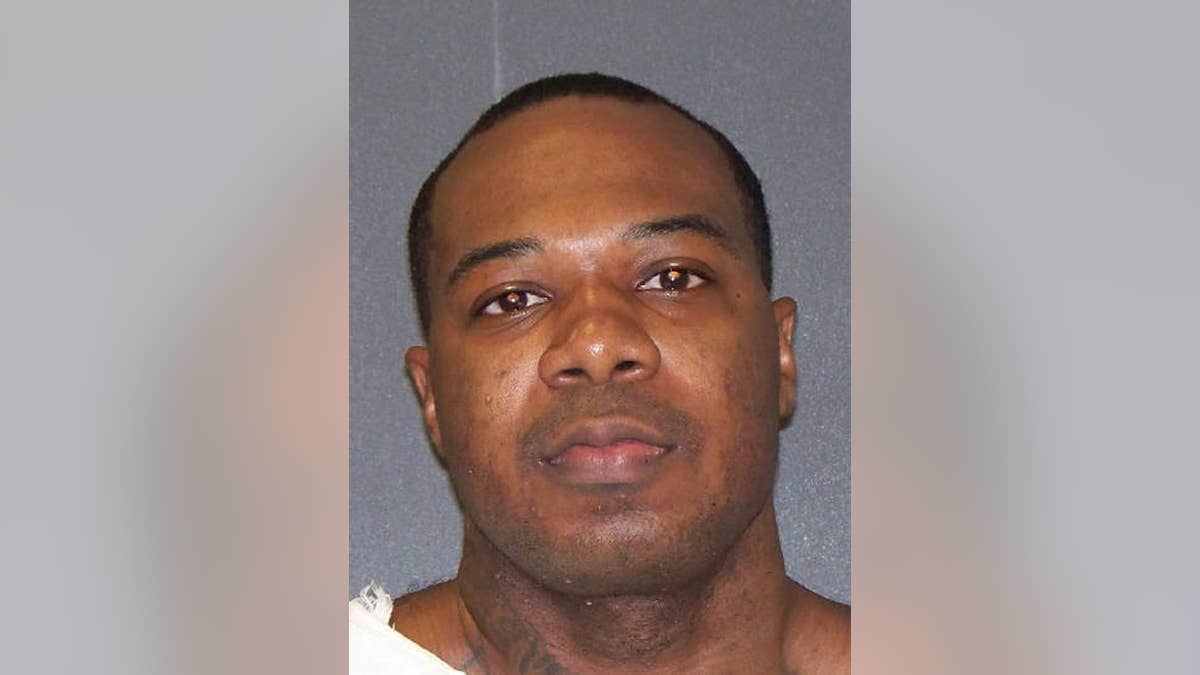
This undated photo provided by the Texas Department of Criminal Justice shows inmate Albert Leslie Love Jr. Texas' highest criminal court has thrown out the conviction of Love, sent to death row for the ambush slayings of two men outside a Waco apartment complex in March 2011. The Texas Court of Criminal Appeals ruled 6-3 Wednesday, Dec. 7, 2016, that 29-year-old Love should get a new trial because cellphone text messages that prosecutors used to tie him to the slayings and were admitted into evidence at his trial improperly were obtained by authorities without the use of a search warrant. (Texas Department of Criminal Justice via AP) (The Associated Press)
HOUSTON – Texas' highest criminal court threw out the conviction of a Waco man sent to death row for the 2011 ambush slayings of two men, saying Wednesday that a proper search warrant wasn't used to obtain text messages that tied him to the killings.
The texts were used against ruled 29-year-old Albert Leslie Love Jr. at his capital murder trial.
"The strongest evidence of his guilt came from the improperly admitted text messages," the Texas Court of Criminal Appeals said in a 6-3 ruling, but those messages "could not be obtained without a probable-cause warrant."
Love is one of two men on death row for the fatal shootings of 17-year-old Tyus Sneed and 20-year-old Keenan Hubert, who were among four people sitting in a car who were shot in what prosecutors said was a gang-related ambush in retaliation for another killing. The slaying victims each had eight gunshot wounds.
"Text messages are analogous to regular mail and email communications ... We hold that (Love) had a reasonable expectation of privacy in the contents of the text messages he sent," the court said.
McLennan County prosecutors had argued they obtained a "court order" to secure 37 pages of phone records showing about 1,600 text messages and the judge at Love's trial allowed the text messages into evidence over the objection of Love's attorneys.
The appeals court, however, said the order pertained to other laws covering phones and was "inapplicable" to this case. It also said prosecutors could not compel Love's cellphone provider to turn over his messages "without first obtaining a warrant supported by probable cause."
Love's appeals attorney, Ariel Payan, called the ruling "kind of a once-in-a-lifetime deal."
"It was a little bit of a surprise, to be honest," he said, particularly after appeals court judges asked questions during oral arguments that gave him the impression of "a lot of resistance" to the appeal.
McLennan County District Attorney Abel Reyna did not immediately respond to a message from The Associated Press.
A jury in 2013 convicted Love of capital murder and then deliberated about 90 minutes before deciding he should be put to death rather than serve life without parole. His trial, moved to Georgetown because of publicity, came a year after a companion, Rickey Donnell Cummings, was sentenced to die. The appeals court a year ago upheld Cummings' conviction. Neither Cummings, 27, nor Love has had an execution date.









































